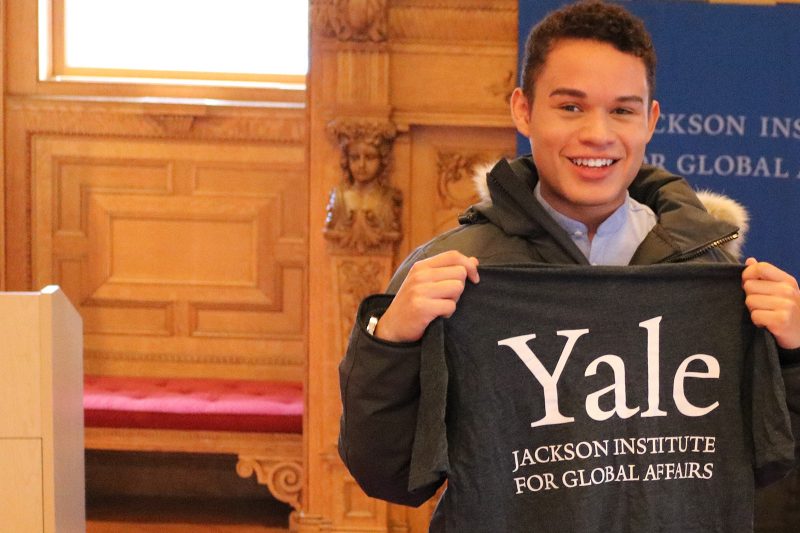Last year, 10 days before the Jackson Institute closed its application for the Global Affairs major, the international community was shaken by the 2016 presidential election. Sudden questions about the future of diplomacy, stability, and U.S.- “insert country here” relations chilled and unsettled scholars across the field of international relations. Many aspiring scholars and IR professionals, especially those of color, also balanced concerns about their community as they pursued careers in a field that became uniquely-challenged overnight. The next morning, in my Global Affairs lecture “The Next China,” taught by Professor Stephen Roach, his opening lecture slide was cleverly and ominously titled “The Next America.”
Following this moment, I questioned how this stunning (and for me, a very difficult) development would influence my academic and career aspirations, given my interest in government and foreign affairs. How can I balance my global interests with this fearsome change in the field? Ultimately, this difficult moment helped me decide that I wanted to use my education to make an impact beyond Yale’s iron gates. I wanted to learn the language and techniques of change. I had always been interested in Latin American current events. Growing up in a Mexican-American family, issues like the Mexican Drug War and the impacts of NAFTA were dinner-table conversations. I lost a cousin to spillover violence in Texas and wanted to delve deeper into the underlying causes of these issues. But I also believed that I should do more than theorize, I wanted to develop tangible skills to find a solution. I wanted research with recommendations, pedagogy with pragmatism. That’s why I decided to apply to the Global Affairs major. I wanted to develop the essential liberal-arts thinking to approach a problem, and the 21st-century skills to solve it.
As a part of the Jackson community, I have come closer towards these lofty objectives. I initially was overwhelmed and nervous to become a part of the Institute. Would I only be surrounded by young Henry Kissingers and people who speak 17 languages? Thankfully this was not the case. In the end, what I found was that what the undergrads, MAs, World Fellows, Senior Fellows, and faculty all have in common is a well-intentioned drive to make a difference. Everyone at Jackson brings a different story with them, and it enriches the entire community. Whether I am engaging in a career conversation with the president of an NGO, debating in a seminar on terrorism, or having coffee with the director of a Latin American policy think tank, I am amazed by the diversity of experiences to which I can relate or learn about.
By now, you’ve probably attended the info sessions, looked at the major requirements, or at least given thought to what the major is. You know that you learn how to use essential social science skills to solve global problems. The Global Affairs major is all this, but it is also so much more. The major is beyond a set of theorems or equations we must memorize, or even just the principles of international security and development. For me, Global Affairs is about bringing my perspective to the table. It is about utilizing incredible resources to direct the change you want to see in the world. And most importantly, it is about finding a community that helps you figure out what you want to do, and then gives you the foundation to do it.
After that foggy morning following the election, I applied to the Global Affairs major. I had many questions about the world and my role in it. A year later, a course of study in Global Affairs has empowered me to believe that my role in the world was much bigger than I thought it was that morning.
